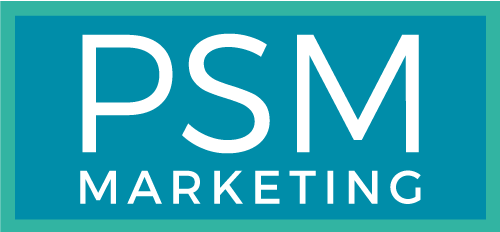What Does it Mean to Scale Your Business?
Scaling your business refers to your ability to increase operational output and revenue growth consistently without a proportional rise in associated costs and complexities.
It means enhancing and expanding your company’s reach, offerings, or impact, while the foundational systems, processes, and operations efficiently adapt to and support this growth.
In essence, successful scaling involves amplifying your business’s positive outcomes without multiplying its operational challenges. It’s about growing smartly, ensuring sustainability and stability while reaching new heights.
Scaling Your Business: Where to Start
The thrill of seeing your business flourish is exciting! Yet, with growth often comes an array of complexities that, if not navigated properly, can dampen your new-found success. Why? Because at a certain point, you will have more work than you do internal capacity to deliver on the work. Your marketing and SEO are paying off, but you’re too busy to get excited about new clients. Landing new clients might even become stressful for you. PSM Marketing understands this duality. This guide isn’t just about celebrating growth, but preparing for it.
Many years ago, before starting PSM Marketing, we read The E-Myth: Why Most Small Businesses Don’t Work and What to Do About It. This book was instrumental in helping us build a company designed for consistent growth by developing “The PSM Marketing Way” for everything we do. In other words, we focused on creating replicable processes and systems that, once created, would provide maximum efficiency in running our business. We strongly recommend this book to our entrepreneurial clients.
The Broader Perspective on Business Scaling: A Deep Dive
Scaling your business is like orchestrating a beautiful symphony. Just as each instrument in an orchestra plays its unique role, different aspects of your business contribute in their distinctive ways to ensure harmonious growth. Let’s delve deeper into each aspect.
Define your Processes – Streamlined Operations
When one mentions streamlined operations, it’s not just about making things run smoothly. It’s about precision, predictability, and reproducibility. But how do you achieve this?
- Documenting the Workflow: Start by documenting every process. Consider the journey of a new client. From the moment they make contact, what steps are initiated? How are they onboarded? How are their needs assessed? A well-illustrated flow chart can visually map out these steps, ensuring that everyone on the team understands and follows a standard protocol.
- Vetting New Clients: A proper vetting system ensures you only accept clients that match your ideal client criteria and quality standards, which is especially critical for businesses dealing with clients and referral sources. When you are in growth mode, it’s even more important to select clients that are the very best fit for your firm or company. The more clients or customers you have, the more selective you can be by focusing on adding “right fit” clients that will ultimately be most profitable for you.
- Continuous Review: Creating a process isn’t a one-time task. As your business environment and tools evolve, so should your processes. Regularly reviewing and tweaking these flow charts will ensure they remain relevant and efficient. Everyone in your company will know your processes, so they also learn “the ‘your company name’ way” of doing things.
Invest in Technology
The digital age has bestowed businesses with tools that not only simplify tasks but can also provide insights that were previously intangible.
- Customizable CRM Tools: CRM systems like Zoho or HubSpot offer personalization. Whether in the legal industry or a non-profit, these tools can be tailored to cater to your unique needs, helping you track client interactions, manage leads, and even forecast potential growth.
- Integrated Financial Software: Platforms such as QuickBooks and Harvest can integrate with other tools, providing real-time insights into your finances. This not only helps in budgeting but also in identifying potential financial risks or opportunities.
- Time Management and Scheduling: Invest in technology tools that make it easier for you to schedule meetings with Appointlet or Calendly. These tools sync with your Google or Outlook calendar and only offer up meeting times when you are available. Make sure you secure a personal Zoom room for meetings. Both Appointlet and Calendly sync with Zoom. No more back and forth trying to get meetings scheduled. Send your client your 30-minute meeting link, and they will pick a time and receive an email confirmation that includes the link to your Zoom Room. The meeting will also automatically be added to your calendar.
Training + Skill Development
Your team is the backbone of your scaling efforts. And just as a growing child needs healthy food, a growing team needs more knowledge.
- Industry-specific Workshops: Encourage your team to attend workshops or webinars related to your industry. This continuous learning ensures your team isn’t just reactive but proactive in understanding industry shifts.
- Internal Training: As you introduce new tools or processes, internal training sessions can ensure everyone is on the same page. This is also a great platform for team members to share their learnings and insights.
- Updating Processes: Meeting regularly with your team allows you to stay connected to the processes and systems you have in place and to solicit process improvement ideas from the people implementing those processes.
The Role of Genuine Feedback
Feedback isn’t just criticism or praise. It’s the mirror that reflects your business’s actual image, not the one you perceive. Here are some ways to ask for feedback both from clients, and from your team:
- Surveys and Questionnaires: Tools like SurveyMonkey can help create client-or employee-focused surveys. We generally create end of project surveys for our clients to send to their clients to ensure we are meeting and exceeding our client’s expectations. We always ask clients, “Knowing what you know about us, would you refer us to others?” When they say “Yes!” the client is automatically directed to your Google Review page, where they can leave a five-star review on your business.
- In-depth Interviews: At PSM Marketing, personal touch matters. Occasionally, conducting face-to-face or virtual interviews with key clients can provide deeper insights that might be missed in standard web-based surveys.
- Internal Feedback: Remember, feedback isn’t just external. Your employees are the cogs that keep the machine running. Regularly collecting their feedback can give insights into internal processes, workplace environment, and potential areas of improvement.
Financial Preparedness
Growth and financial investment go hand in hand. I It’s not just about having funds, but rather, how to allocate them wisely.
- Foreseeable Expenditure: As you scale, list potential expenditures you will need to grow and expand. Maybe you need a bigger office, more office space, or a more robust digital infrastructure. Anticipating these costs can help in budgeting and managing your growth.
- Contingency Funds: Not all expenditures can be planned. A contingency fund ensures unforeseen expenses don’t derail your scaling plans.
- Strategic Investment: Sometimes, it’s not about spending less but spending your money on the right things. Having PSM Marketing guide your growth initiatives will accelerate your growth, making any additional investments worthwhile.
Scaling is an intricate balance of strategy, anticipation, and execution. As you embark on this journey, understanding the broader elements of scaling your business for growth and future success will ensure you’re not just growing in size but in-depth and resilience. Whether through meticulously designed processes, leveraging the latest technology, continuous skill development, or actively seeking feedback, each step contributes to building a business that’s not just bigger but better.
What We See with Our Clients
At PSM Marketing, we generate success for our clients. This means more revenue and a sense of being busy, at times bordering on too busy. What does this look like for you? You’re thrilled to have the phones ringing and clients coming in through your website, SEO, social media, and live chat. But you’ve noticed it’s become harder to answer your phones, return calls, vet prospective clients, manage new client engagements, deliver your services, and collect client fees while needing to break away to attend new client meetings, vendor calls, or training programs. Slowly, you realize you’re feeling overwhelmed and stressed out.
Before you get to this point, we work with you to build a scalable business model that grows with you in a manageable way. Consider some of the potential growing pains you might experience, followed by pragmatic strategies to manage your growth by scaling your business to support your flow of new clients.
Growing Pains: The Hidden Risks of Racing to the Top
Growing too fast, commonly referred to as “hypergrowth,” can bring about a rush of excitement for a business. The influx of orders, new clients, skyrocketing revenues, or sudden media attention can feel like unequivocal success. However, beneath the surface, unchecked rapid growth can present significant challenges. Here are the implications of growing too quickly:
Operational Overwhelm: With a sudden surge in demand, operations can become strained. This includes everything from producing the work product, fulfilling orders, and delivering excellent customer service. Without the appropriate infrastructure and processes, businesses can fail to deliver on promises, leading to backlogs and dissatisfied customers or clients.
Quality Compromise: When racing against time, there’s a risk of cutting corners. The quality of products or services might suffer, potentially alienating customers or clients with higher expectations based on past experiences or the brand promises of your business.
Cash Flow Issues: Paradoxically, rapid growth can strain a company’s finances. Inventory, hiring, and infrastructure investments may outpace incoming revenues, leading to cash shortages. If not managed properly, this can spiral into serious financial trouble.
Cultural Strain: Hiring to accommodate growth is essential, but onboarding many new employees quickly can dilute company culture. New employees might not align with the company’s core values without proper induction and time to assimilate, leading to internal conflicts and decreased morale.
Decision-making Paralysis: In the face of rapid changes and growth, decision-making can become reactive rather than proactive. The leadership might face so many urgent matters that there’s no time for strategic planning, potentially leading to poor long-term decisions.
Burnout: With increased demand and pressure, leadership and employees may work longer hours without breaks. This can lead to burnout, decreased productivity, and increased turnover.
Over-dependence on a Single Revenue Stream: If growth is driven primarily by one product, service, or client, businesses become vulnerable. Any shift in the market affecting that revenue stream can have disastrous consequences.
Regulatory and Compliance Oversights: Rapid expansion might lead to oversights, especially in industries where compliance is crucial. This can result in legal troubles, penalties, and a tarnished reputation.
Supply Chain Disruptions: Relying on a few suppliers or not having backup options can lead to significant disruptions if demand suddenly outstrips supply or if there are external disruptions (e.g., geopolitical issues or natural disasters).
Reputation Risks: Today, word spreads fast. If customers have negative experiences due to a company’s inability to manage growth, they’re likely to share their grievances online, which can harm a brand’s reputation.
While growth is often a primary objective for businesses, ensuring that it’s sustainable and well-managed is vital. The challenges of growing too quickly underscore the importance of building a robust foundation, planning for scalability, and always keeping an eye on the business’s long-term health.
Industry-Specific Scaling Tips
Let’s delve into specific measures industries can take for a better understanding.
Lawyers + Law Firms
Lawyers often juggle myriad cases simultaneously. Investing in case management software can help organize caseloads and delegate tasks effectively. Many of our clients use tools like Clio Manage, Clio Grow, MyCase, CosmoLex, and Leap. Many of these case management tools can integrate with your website form, allowing you to automate your lead generation process.
Green Energy + Contracting Firms
Green energy firms might benefit from partnering with local governments or larger corporations for subsidized projects or joint ventures. A robust project management tool for contractors will be essential as the number of projects increases.
Non-profits + Small Entrepreneurs
Non-profits should focus on diversifying their fundraising channels. Grant writing workshops and donor engagement events can provide a steady inflow of funds. For small businesses, collaboration and community engagement can be a powerful tool. Joint ventures or cross-promotions with complementary businesses can boost visibility without substantial costs.
The Ultimate Scaling Challenge: Staffing
With great growth comes the undeniable need for more hands-on deck. Here’s a nuanced approach to staffing as you scale:
- Temporary to Permanent: Start with hiring on a contractual or temporary basis. As the demand stabilizes, you can transition these roles into permanent ones.
- Delegation and Middle Management: As the founder or CEO, you shouldn’t be overwhelmed with micro-management. Hiring middle managers can help distribute responsibilities and streamline operations.
- Cultural Fit: While skills are crucial, ensure new hires align with your company’s culture and values. This becomes even more vital as the company grows, ensuring everyone is rowing in the same direction.
Scaling is a journey, not a destination. It’s the art of ensuring you don’t lose the essence of your business as you grow in numbers. The above guide, while comprehensive, is just the tip of the iceberg. Every business is unique, and so are its scaling challenges. But with a solid strategy, continuous learning, and adaptability, the sky’s the limit.
Ready to talk?
FAQs About Scaling Your Business
How can marketing help scale my business?
Marketing plays a pivotal role in scaling a business by increasing brand awareness, attracting more customers, and driving revenue growth. It involves strategies like targeted advertising, lead generation, and effective communication to reach a larger audience.
What marketing channels are effective for scaling a business?
Effective marketing channels for scaling include digital advertising, content marketing, social media, email marketing, and search engine optimization (SEO). Choosing the right mix depends on your business type and target audience.
How can I identify my target audience for scaling purposes?
Identifying your ideal customer through market research and data analysis helps tailor marketing efforts. Develop customer personas to understand their needs, preferences, and behaviors.
What role does branding play in scaling a business?
Strong branding sets your business apart, builds trust, and creates a loyal customer base. It's crucial when expanding, as it helps maintain consistency and recognition as you enter new markets.
How can I ensure marketing efforts align with business growth goals?
Start by setting clear, measurable marketing goals that align with your overall business objectives. Regularly analyze performance data to make data-driven decisions and adjustments.
What's the importance of content marketing when scaling?
Content marketing establishes authority, educates your audience, and attracts potential customers. Scaling often involves creating more high-quality content to reach a wider audience.
How can I scale my marketing budget effectively?
Allocate your marketing budget based on channels that yield the best ROI. As your business grows, reinvest profits into marketing to drive further expansion.
Is it beneficial to hire a marketing agency when scaling my business?
Yes, hiring a marketing agency can be beneficial, as we bring expertise, resources, and a fresh perspective. We can help you navigate the complexities of scaling and ensure your marketing efforts are efficient and effective.
What Our Clients Say
Clients We Serve
PSM has a long history serving lawyers, recruiting firms, renewable energy companies, contractors, small businesses and non-profits. The majority of clients we serve fall into one of these categories:
Recent Blogs from PSM Marketing
Maximizing Client Retention: Marketing Strategies for Professional Service Firms
Client retention is the lifeblood of professional service firms. While attracting new clients is important, keeping the ones you already have is crucial for long-term success. In fact, studies show that retaining a client can be five times cheaper than acquiring a new...
PSM Partners Endorse Kamala Harris
Endorsing Kamala Harris: A Legal Force and Advocate for Women, Small Businesses, and the Middle Class As the owners of PSM Marketing, a proudly woman-owned and family-operated business, we are thrilled to endorse Kamala Harris for President of the United States....
Generative AI: Unlocking the Magic Behind Modern Technology
Imagine having a conversation with your computer, asking it to create a piece of art, or even requesting it to write a song. Sounds futuristic, right? Well, welcome to the world of generative AI, a technology that makes all this possible and more! But what exactly is...
10 Summer Marketing Ideas for Professional Services Firms
Summer is a vibrant time of the year, perfect for professional services firms to implement fresh and innovative marketing strategies. Here are ten best practices to help your firm generate new business and expand name recognition this summer. 1. Host Outdoor...
Twice as Nice: Navigating the SEO Maze with Duplicate Content
Duplicate content refers to blocks of content that appear in more than one place—that is, content that appears on multiple pages within a single website or across different websites. In the context of SEO (Search Engine Optimization), duplicate content can be...
10 Tips for Writing an Engaging Blog Post
Creating engaging blog content is both an art and a science. At PSM Marketing, we understand the importance of not just reaching your audience but captivating them. Whether you’re a seasoned writer or just starting out, these ten tips will help you craft blog posts...






